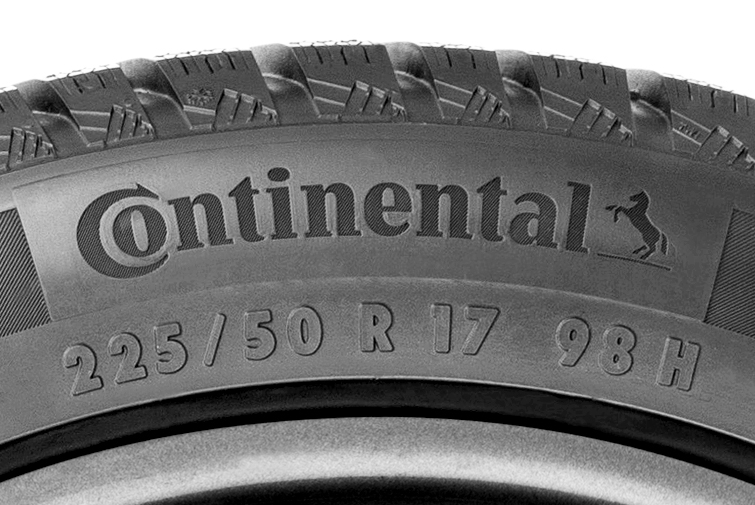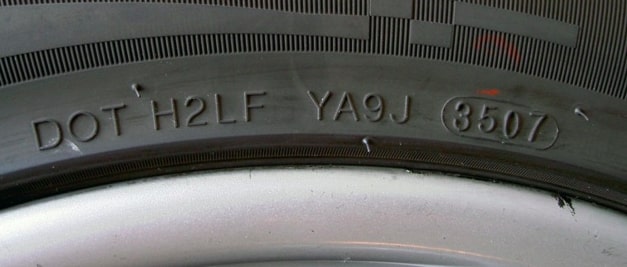If you’ve been, even mildly, observant, you would come to notice that the tires on your car have numbers embossed into the sidewall. What do those tire numbers mean?
What do those mean?
Well, for one, you could try typing that out into the computer in the hatch and see if it stops Oceanic Flight 815 from crashing (answer in the comments section. One free pick-up-drop-off* for the first 3 people who get it right).
But no, that would not work. Today, we’re going to tell you how to decipher the mystery numbers on your tire.

The first 3 digits.
This number indicates the WIDTH of the tire.
Why is this important? Because every car comes with a wheel (or sometimes called a rim) of a specified width. Since the tire goes over the wheel, it’s important to match the width of the tire to the width of the wheel.
But this doesn’t mean only a 225-inch tire would fit over a 8j wheel. You have a little wiggle room. For instance, you can still go a little wider or narrower depending on what size you find at your local shop. Just FYI, this may affect your handling slightly.
The factory handling characteristics of a car is designed around the size of the standard tire. Keep this in mind if you’re a corner carver.
Second, the one after the ‘/’ – 50.
Aspect ratio. This basically is a measure of the sidewall’s thickness on the tire, representated as a percentage of the tire’s width. In this case, the sidewall thickness is 50% of the width of the tire.
The aspect ratio (or sidewall thickness) is usually what governs the ride quality on your car. The higher the number, the better the ride. The lower the number (like in most performance cars), except to have a chiropractor on call. Ok, We exaggerate. We love some low-profile handling tires.
On to the next, R17.
A fairly simple one to understand. The number after the ‘R’ shows the size of the wheel the tires wrap around.
If your car comes with 16-inch wheels, the tire you’d be looking for is an R16. If it’s an 18 inch wheel, R18 and so on.
Easy!
Next up, Number 98.
This defines the load index, and defines the load a car can carry.
This can vary depending on the vehicle’s weight and hence it’s important that you match this number with the manufacturer’s recommendation. Yes, this means brushing up on your owner’s manual, the forgotten book in your glove box or your boot. Look it up.
Moving on to the SPPPEEEEEEEEEEEEEED (click for Jeremy Clarkson) Rating – the alphabet (H)
This is the maximum speed at which the tire can be driven at, safely. Speed ratings go all the way from L to Y (refer to a proper speed chart to know how much the tire can handle).
Make sure this rating can match your car’s top speed so that you can cruise reliably at 200mph (JK).
There is a reason why the Veyron and the Chiron have special bespoke tires!
These cover the main numbers but it’s not all over yet!
Your tires cake date (aka manufacturing date)
Rubber can’t last forever. If they did, we would never ever have to change them out. But unfortunately, they fall prey to the elements and all that friction between the road and the tire will eventually wear them out.
Constant contraction and expansion due to temperature differences throughout the day also play a role in deteriorating them.
And that’s why it’s important to check the manufacturing date on your tire. As a rule of thumb, it’s best to change them out every two years to ensure you have a reliable car.

The 4 digit number that shows the age of the tire is embossed in an oval circle – in the example above, 3507.
The first two digits show the week of the year it was manufactured and the last two digits are the year. So in the example, the tire was manufactured on the 35th week of 2007 (do the math and get the month – work them grey matter).
It is key to check this when replacing your tires so that you know you’re getting the newest rubber on your machine.
Hope you have now understood what most of those numbers on your tire mean!
Check out our tire category and get talking to our listed tire shops to change out those old shoes.
You can also find out more about the UAE’s car tire laws here.
* Pick-up and drop off only for the first 3 people. Applicable for new customers only. Pickup location must be in Dubai, U.A.E. Competition open till 31st May 2020.


